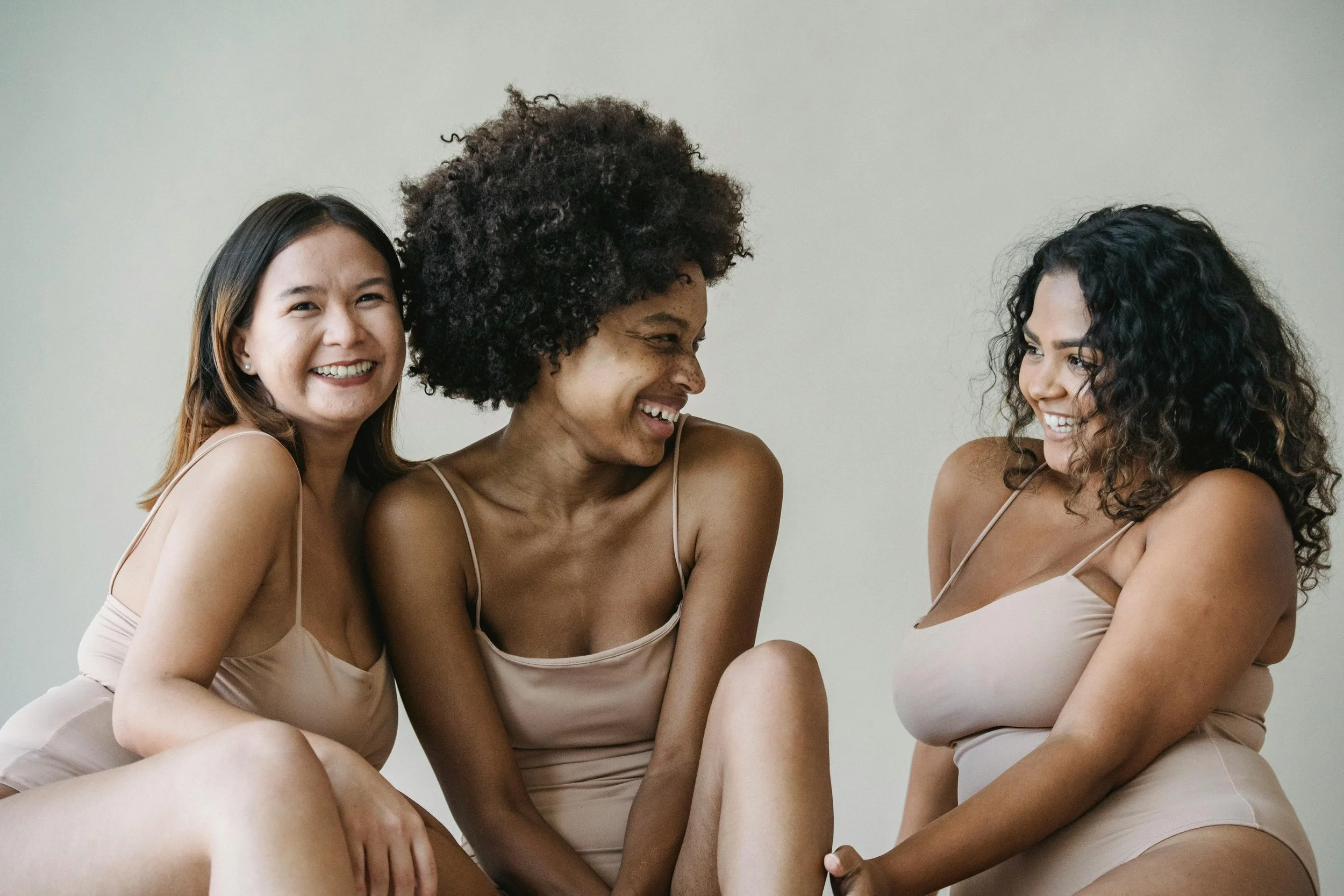Loving Our Bodies
Learning to love and honor our bodies isn't always straightforward. We're constantly exposed to images of "ideal" bodies in the media, which can make us feel inadequate. From diet culture pushing restrictive eating to media glorifying specific body types, it’s easy to fall into the trap of body dissatisfaction. Cultural norms and traditional gender roles pile on more pressure, dictating how we should look and act based on our gender. And let's not forget the lack of diverse representation in media, which makes it hard to see our own unique beauty.
Photo credit: Anete Lusina
Pop culture and social media crank up the pressure even more with their filtered and edited images, promoting unattainable beauty trends and fitness ideals. The constant comparison can distort our perception of reality. To fight back, we need to get savvy about media manipulation, seek out diverse and positive representations, and focus on feeling good rather than just looking good. Surrounding ourselves with supportive communities and practicing self-compassion are key steps towards loving and honoring our bodies just as they are.
Building a positive relationship with your body is super important for your mental health. Body dissatisfaction is closely linked to issues like depression, anxiety, and eating disorders. When we’re always nitpicking our looks or chasing impossible standards, it can really mess with our heads. Body dissatisfaction isn’t just about feeling a bit off— it is when you constantly feel unhappy with your body (usually because you compare yourself to images of airbrushed models or influencers on social media). It can make you doubt yourself and feel less confident about your appearance, impacting your overall mood and self-esteem. These negative vibes about our bodies can spill over into other areas of life, dragging down our overall happiness.
Illness or disabilities also affect how we feel about our bodies by changing our appearance or abilities in ways that don’t match societal expectations. This can lead to feeling self-conscious or frustrated, especially when we can’t do things we used to enjoy. For instance, someone unable to participate in certain activities they once enjoyed may feel disconnected from their body or perceive it as a source of limitation rather than capability.
On a psychological level, managing health conditions or disabilities can be emotionally taxing, potentially leading to feelings of anger, grief, or resentment towards one's body for not functioning as expected. Supportive environments, adaptive strategies, and positive self-talk are crucial in promoting acceptance and nurturing a healthier relationship with one's body despite these challenges. It’s important to find ways to adapt and focus on what our bodies can do rather than what they can’t and to surround ourselves with supportive people who appreciate us for who we are beyond our physical appearance.
Loving and honoring our bodies can positively impact our mental health, helping to reduce the risk of challenging disorders and promoting a happier, more balanced life. Let’s appreciate our bodies for all they do and focus on feeling good inside and out!
Daily Practices to Connect with Your Body
1. Practice self-compassion. Treat yourself with the same kindness and understanding that you would offer a friend. When you have negative thoughts about your body, gently redirect them towards positive affirmations.
2. Limit time on the scale. Focus on how your body feels rather than what the scale says. Numbers don’t define your value.
3. Curate your social media. Follow accounts that promote body positivity and diversity. Surround yourself with messages that celebrate all body types.
4. Wear comfortable clothing. Choose clothes that make you feel comfortable and happy. Whether it's cozy loungewear or an outfit that makes you feel confident, wear what brings you joy.
5. Enjoy movement. Engage in physical activities that you enjoy. Whether it’s dancing, hiking, yoga, or simply taking a walk, find ways to move your body that make you feel good.
6. Eat mindfully. Listen to your body’s hunger cues and nourish it with foods that make you feel good. Enjoy your meals without guilt, focusing on how they make you feel energized and satisfied.
7. Practice mindfulness. Spend a few minutes each day tuning into your body. This can be through meditation, deep breathing, or simply paying attention to how your body feels at the moment. Mindfulness helps you appreciate your body’s capabilities and fosters a deeper connection.
8. Express gratitude. Each day, take a moment to appreciate what your body does for you. Whether it’s the ability to walk, laugh, or hug a loved one, acknowledging these gifts can help cultivate gratitude.
9. Seek support. If you find it challenging to improve your body image, don’t hesitate to seek help. Therapists, support groups, and loved ones can provide invaluable support and encouragement.
Photo credit: Antonius Ferret
No matter what, be patient with yourself and celebrate your progress, no matter how small! Changing how you feel about your body is a gradual process.
Body positivity is not linear and does not have a finish line; it’s a life long journey towards honoring your body for everything it allows you to experience and achieve. Your worth is not determined by your appearance or your physical abilities. You are a unique combination of your passions, kindness, intelligence, and so much more.
Each positive thought and action brings you closer to a healthier relationship with your body. Share your journey, uplift others, and together, let’s create a community where every body is celebrated.


